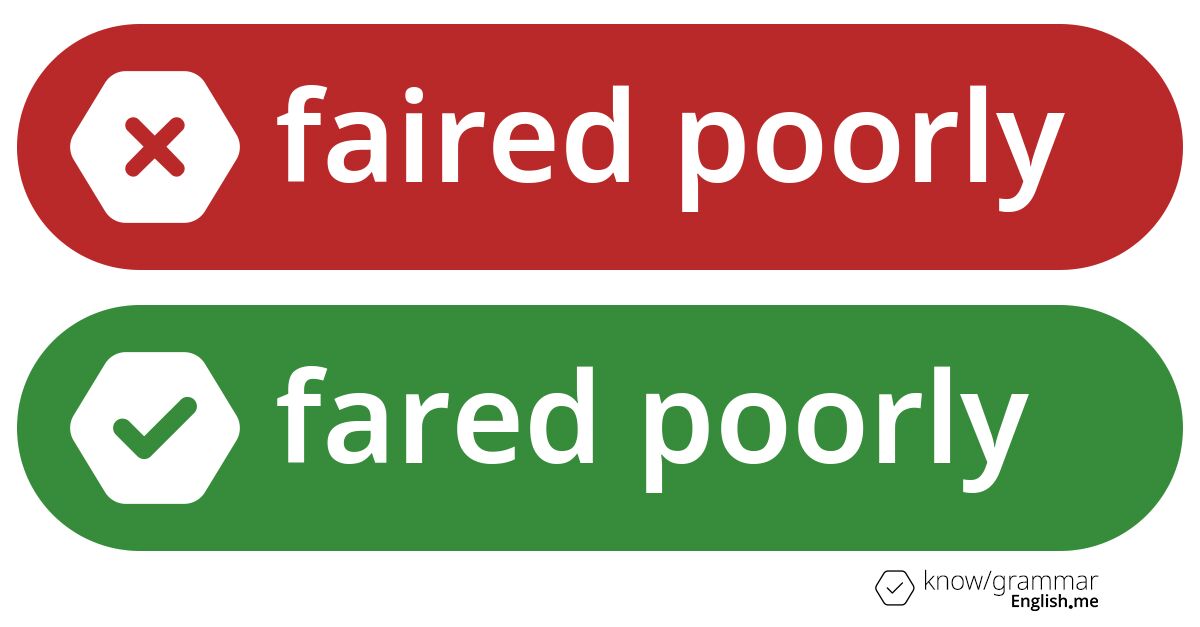Why "faired poorly" fares poorly: an error explained
Reviewed and edited by  Lloyd Cooper 30/09/2024, 19:17
Lloyd Cooper 30/09/2024, 19:17
English.me team member
 What kind of error is it?
What kind of error is it?

Spelling error
 Why do people make this mistake?
Why do people make this mistake?
The error occurs because "faired" is a homophone of "fared". People often confuse homophones, as they sound identical but have different meanings and spellings. In this case, "faired" is a form of the word "fair", which means light in color or equitable, whereas "fared" is the correct past tense of "fare", meaning to perform or get along.
 What is correct?
What is correct?
The correct term is "fared poorly", using "fared" as the past tense of "fare".
 Examples of correct usage
Examples of correct usage
- She fared poorly on the exam because she didn't study.
- The athlete fared poorly in the competition due to an injury.
- During the storm, the town fared poorly, suffering significant damage.

 English
English español
español française
française italiano
italiano deutsche
deutsche 日本語
日本語 polski
polski česky
česky svenska
svenska Türkçe
Türkçe Nederlands
Nederlands